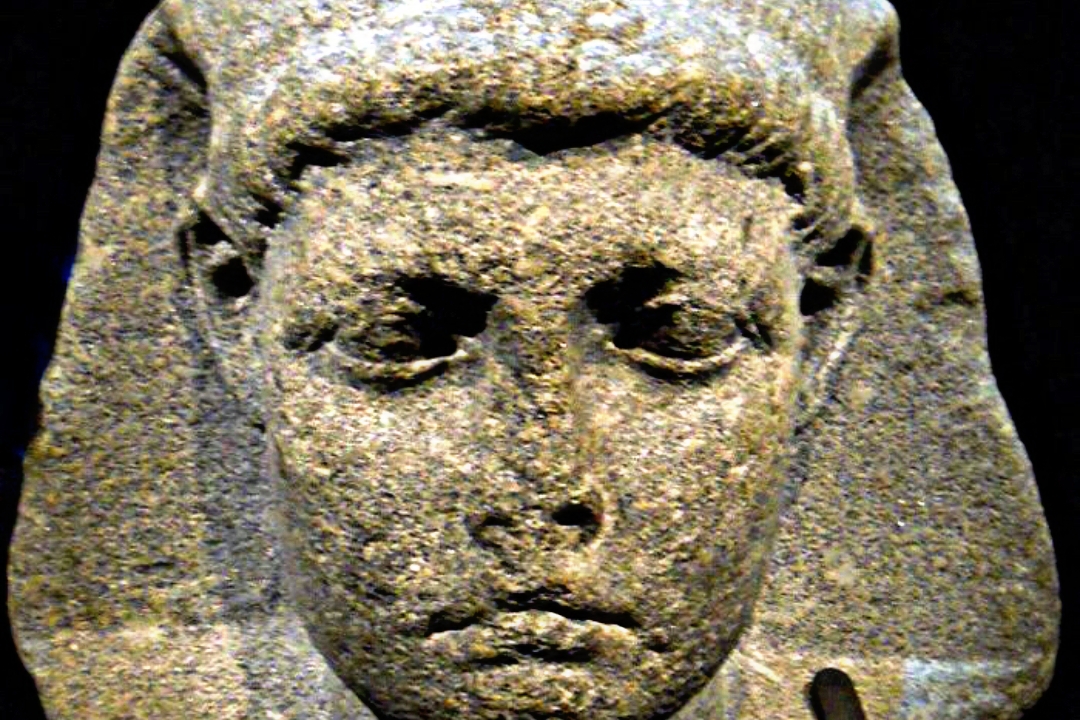Caesarion, born Ptolemy XV Philopator Philometor Caesar, holds a unique place in history as the son of two of antiquity’s most famous figures: Julius Caesar and Cleopatra VII. His life, shrouded in intrigue and steeped in tragedy, represents the end of one era and the beginning of another. As the last ruler of the Ptolemaic dynasty, Caesarion’s short life was marked by political machinations, imperial ambitions, and a dramatic end that underscored the ruthless nature of power struggles in the ancient world.
Despite his historical significance, Caesarion remains an enigmatic figure, overshadowed by his illustrious parents. Yet, his story provides crucial insights into the turbulent dynamics of Roman and Egyptian politics, the ambitions of Cleopatra, and the cultural and political legacy of the Ptolemaic kingdom.
The Birth of Caesarion: A Union of Rome and Egypt
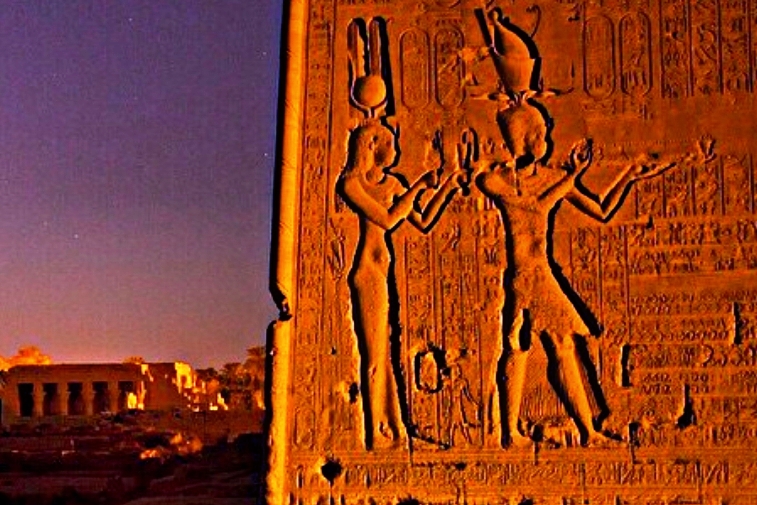
Caesarion was born in 47 BCE in Alexandria, the capital of Egypt. Cleopatra VII, his mother, claimed that he was the son of Julius Caesar, the Roman general and dictator. This assertion, if true, made Caesarion the only known biological son of Caesar. Cleopatra likely saw her son’s lineage as a means to solidify her own political power and to forge a lasting connection between Egypt and Rome.
The name “Caesarion,” which translates to “Little Caesar,” underscored this connection. Cleopatra’s public declarations of Caesarion’s paternity were politically charged, as they implied that Caesar had ties to Egypt’s royal family and its governance. This assertion, however, was controversial in Rome, where many were skeptical of Cleopatra’s claims. Nevertheless, Caesarion’s lineage became central to Cleopatra’s ambitions for maintaining her dynasty and Egypt’s independence in the face of Roman expansion.
Caesarion’s Role in Cleopatra’s Political Strategy
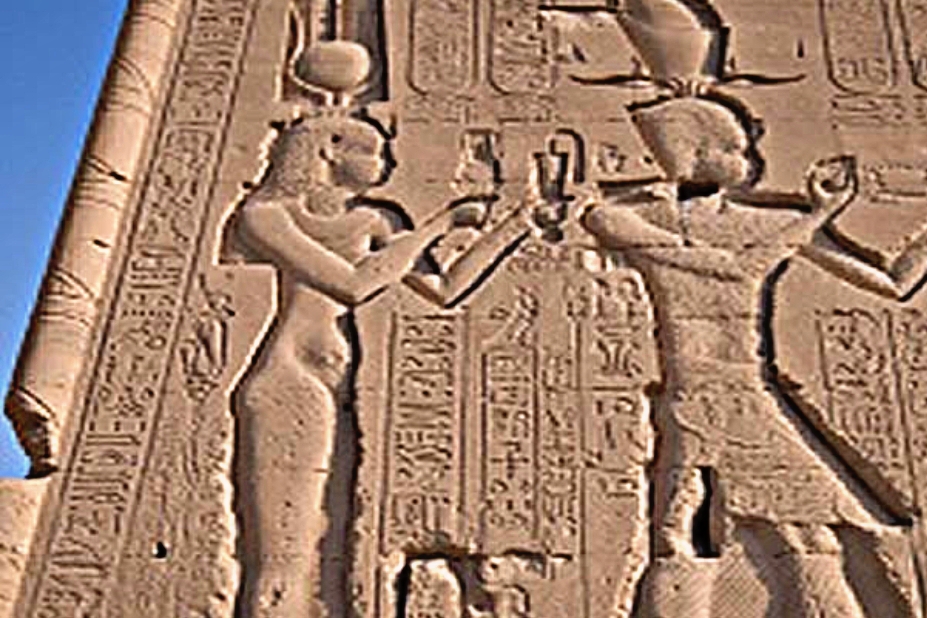
From an early age, Caesarion was positioned as a key figure in Cleopatra’s political strategy. Cleopatra envisioned her son as the heir to both the Ptolemaic throne and, potentially, Julius Caesar’s Roman legacy. This dual identity made Caesarion a symbol of a potential union between the East and the West.
Cleopatra’s ambitions for Caesarion were evident in the “Donations of Alexandria” in 34 BCE. During this grand ceremony, Cleopatra and Mark Antony publicly declared Caesarion as the “King of Kings” and co-ruler of Egypt. This declaration aimed to bolster Caesarion’s legitimacy and to assert Cleopatra’s vision of an empire centered on Alexandria.
The Donations of Alexandria, however, provoked outrage in Rome. Octavian, Julius Caesar’s adopted heir and Antony’s rival, used this event to portray Antony and Cleopatra as a threat to Roman traditions and values. Caesarion’s elevated status became a focal point in Octavian’s propaganda, which painted Cleopatra as a manipulative foreign queen and Antony as her complicit ally.
Caesarion’s Life in a Tumultuous Era
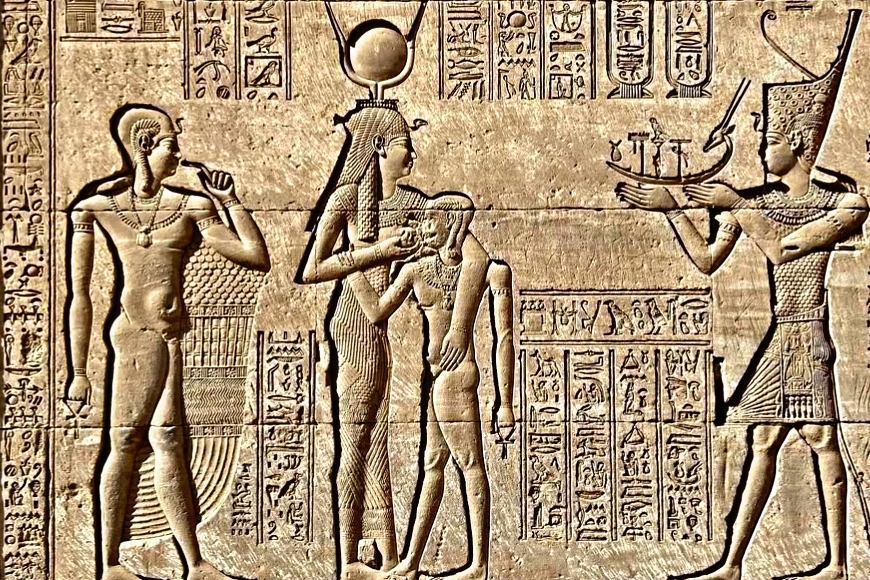
Caesarion’s life was deeply shaped by the turbulent political landscape of the late Roman Republic. The rivalry between Mark Antony and Octavian escalated into a civil war, with Cleopatra and Caesarion caught in the middle.
Cleopatra’s decision to ally with Antony was partly motivated by her desire to protect Caesarion and secure his position as her successor. Antony, in turn, viewed Caesarion as a valuable asset in his struggle against Octavian. Together, Cleopatra and Antony sought to create a Hellenistic-Roman empire that could rival Octavian’s power.
As tensions between Antony and Octavian reached a breaking point, Caesarion remained in Alexandria under his mother’s protection. Cleopatra likely sought to shield her son from the immediate dangers of war while positioning him as a symbol of continuity and legitimacy for the Ptolemaic dynasty.
The Battle of Actium and Its Aftermath
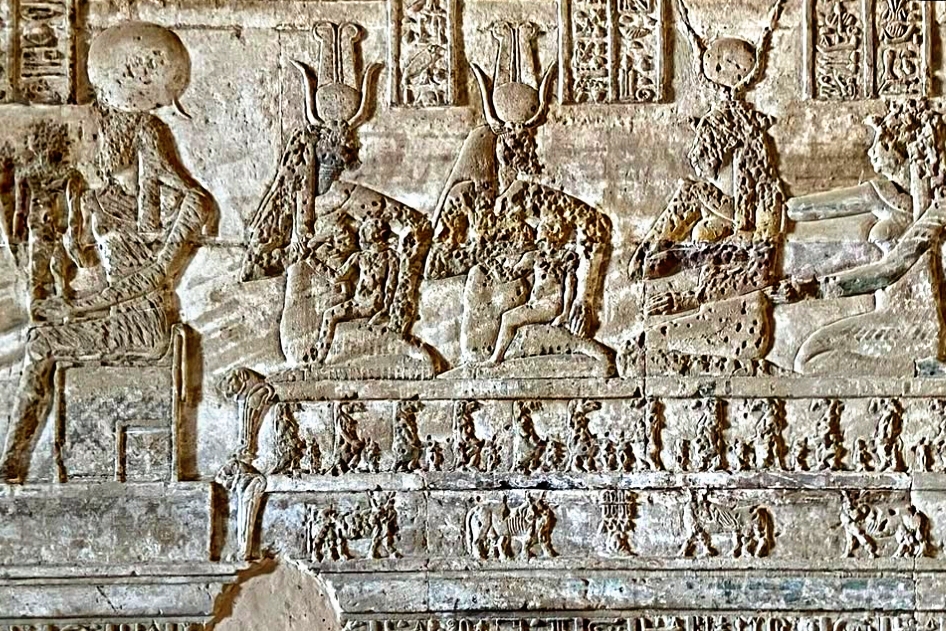
The decisive moment in Caesarion’s life came in 31 BCE at the Battle of Actium. This naval engagement, fought between the forces of Antony and Octavian, marked the culmination of years of political and military rivalry. Antony and Cleopatra suffered a catastrophic defeat, and their forces were forced to retreat to Egypt.
With Octavian’s army advancing on Alexandria, Cleopatra took desperate measures to secure Caesarion’s safety. According to historical accounts, Cleopatra sent Caesarion to Upper Egypt with trusted advisors, possibly to flee to India or Nubia. Her intent was to ensure his survival in the event of her own downfall.
Cleopatra and Antony’s deaths in 30 BCE marked the end of the Ptolemaic dynasty’s hold on Egypt. Antony took his own life after receiving false news of Cleopatra’s death, while Cleopatra reportedly died by suicide after Octavian captured Alexandria. Their deaths left Caesarion as the last legitimate claimant to the Egyptian throne.
The Death of Caesarion
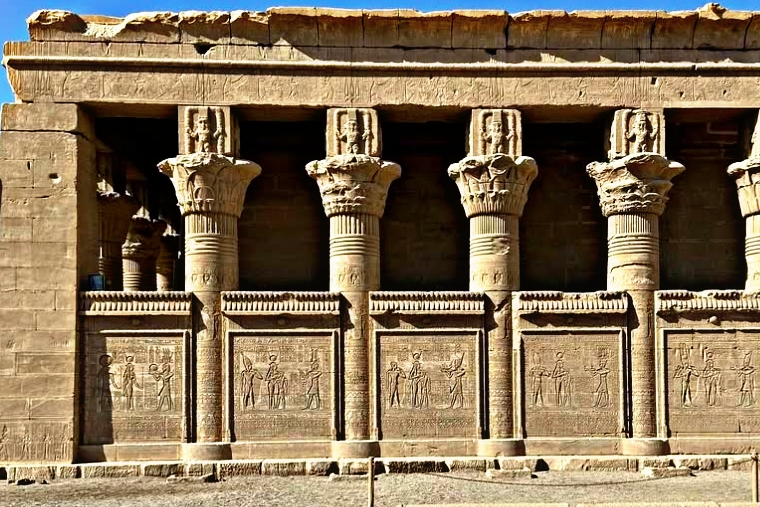
Following Cleopatra’s death, Caesarion’s fate was sealed. Octavian, now in control of Egypt, viewed Caesarion as a direct threat to his authority. As the biological son of Julius Caesar and a symbol of the Ptolemaic dynasty, Caesarion represented a potential rallying point for resistance against Roman rule.
According to Roman historian Suetonius, Octavian famously remarked, “Two Caesars are one too many,” before ordering Caesarion’s execution. This decision was likely a calculated move to eliminate any challenge to his claim as Julius Caesar’s rightful heir.
Caesarion was captured and killed in 30 BCE at the age of 17. His death marked the final chapter of the Ptolemaic dynasty, which had ruled Egypt for nearly three centuries. With Caesarion’s demise, Egypt became a Roman province, and Octavian solidified his position as the first Roman emperor, taking the title Augustus.
Caesarion as a Symbol of Unity and Power
Cleopatra’s political goals for Caesarion were ambitious. She envisioned him as the linchpin of a Roman-Egyptian alliance, a figurehead capable of consolidating the shared vision of governance and power. This vision culminated in the symbolic gestures during the “Donations of Alexandria” in 34 BCE. During this lavish ceremony, Antony declared Caesarion “King of Kings,” an assertion intended to strengthen both his and Cleopatra’s claim to power.
Caesarion’s role was deeply political. He wasn’t merely a royal heir but a symbol of the intertwined ambitions of Rome and Egypt. His presence was meant to create a bridge between the two great civilizations, uniting their resources and power against their common enemies. However, these political aspirations would lead to significant challenges.
Antony and Cleopatra’s alliance was seen as a threat by their Roman rival, Octavian. Octavian, the adopted heir of Julius Caesar, had his own vision for the future of Rome. He viewed Antony and Cleopatra’s actions—and by extension Caesarion—as a betrayal of Roman values and traditions. This political rivalry would ultimately lead to the catastrophic events of the civil war that culminated at the Battle of Actium.
The Role of Caesarion in Cleopatra’s Political Maneuverings
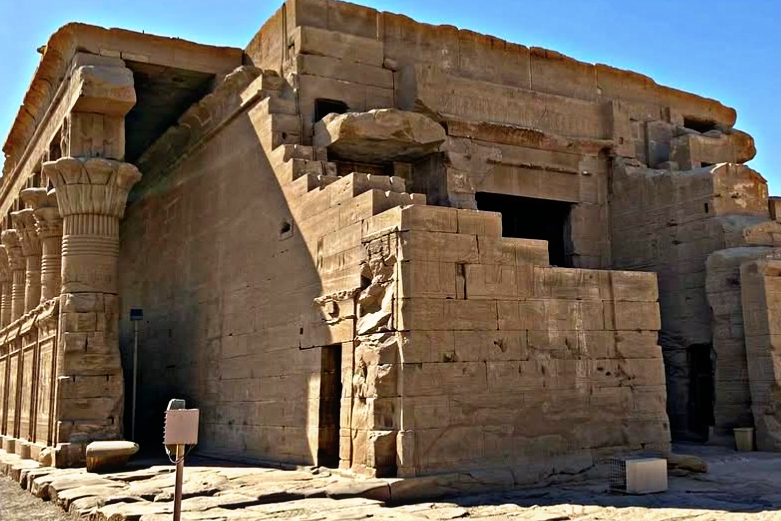
Caesarion was more than just a symbol or figurehead. Cleopatra’s strategic decisions often involved the young boy’s influence and well-being, particularly during the volatile period of the Roman civil wars. Cleopatra’s relationship with Mark Antony placed Caesarion at the heart of these tumultuous events.
When Mark Antony returned to Alexandria in 41 BCE, Cleopatra’s political ambitions focused on strengthening their relationship and securing Caesarion’s future. She bore Antony twins during this time, Alexander Helios and Cleopatra Selene, solidifying the children’s royal status and further emphasizing the alliance between Cleopatra and Antony. Caesarion, as the eldest son, remained the most critical symbol of the union between Egypt and Rome.
Cleopatra saw her son as not just a political heir but a direct extension of her own vision for Egypt’s strength. Her careful political strategy, her ability to maintain her rule in the face of Roman pressures, and her relationship with Antony were all focused on ensuring Caesarion’s position as her successor and a unifying figure capable of drawing together Egypt and Rome.
Despite the political promises made in Alexandria and the military campaigns that followed, Rome’s ambitions clashed with the aspirations of Cleopatra and Antony. Caesarion’s life would ultimately become a symbol of these conflicting ambitions.
The Legacy of Caesarion
Caesarion’s life and death hold significant historical and symbolic importance. As the last pharaoh of Egypt, he represents the end of an era in which Egypt was an independent and influential power in the Mediterranean world. His death also symbolizes the ruthless pragmatism of Roman politics, where no potential rival was tolerated.
Despite his brief life, Caesarion’s story has captured the imagination of historians, writers, and artists. He is often depicted as a tragic figure, a young king whose potential was cut short by the relentless march of history. His relationship with his mother, Cleopatra, and her unwavering efforts to secure his future further highlight the complexities of their intertwined destinies.
Caesarion’s legacy is also intertwined with the broader cultural and political legacy of the Ptolemaic dynasty. As the last representative of this Greek-Egyptian ruling family, Caesarion embodies the blend of Hellenistic and Egyptian traditions that defined the Ptolemaic era. His life serves as a reminder of the challenges and opportunities faced by rulers navigating the complex interplay of cultures and empires.
Caesarion in Popular Culture and Historical Memory
Caesarion’s story has inspired numerous portrayals in literature, film, and art. While historical records provide only fragmentary details about his life, his association with Cleopatra and Julius Caesar has made him a compelling figure in popular culture.
In many retellings, Caesarion is depicted as a symbol of lost potential, a young ruler who might have bridged the gap between Rome and Egypt if circumstances had been different. His tragic end resonates with audiences as a reminder of the human cost of power struggles and imperial ambitions.
Conclusion
Caesarion’s life, though brief, serves as a window into a pivotal moment in ancient history. As the son of Julius Caesar and Cleopatra, he was born into a world of immense political and cultural complexity. His mother’s ambitions and his father’s legacy positioned him at the center of the struggle between Rome and Egypt, making him both a symbol of unity and a target of political rivalries.
The story of Caesarion is one of ambition, resilience, and ultimately tragedy. His life and death underscore the fragility of power and the relentless forces of historical change. While his reign as the last pharaoh of Egypt was short-lived, Caesarion’s legacy endures as a poignant reminder of the human stories behind the rise and fall of empires.

